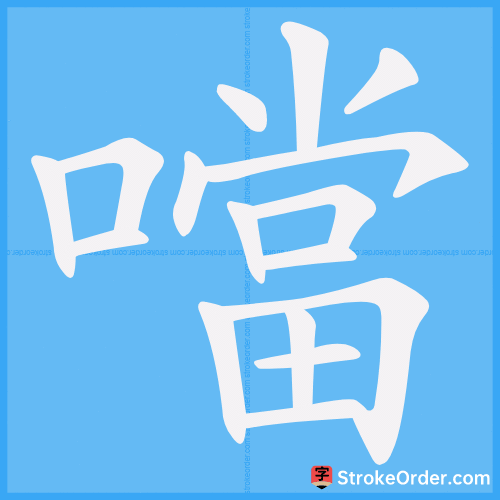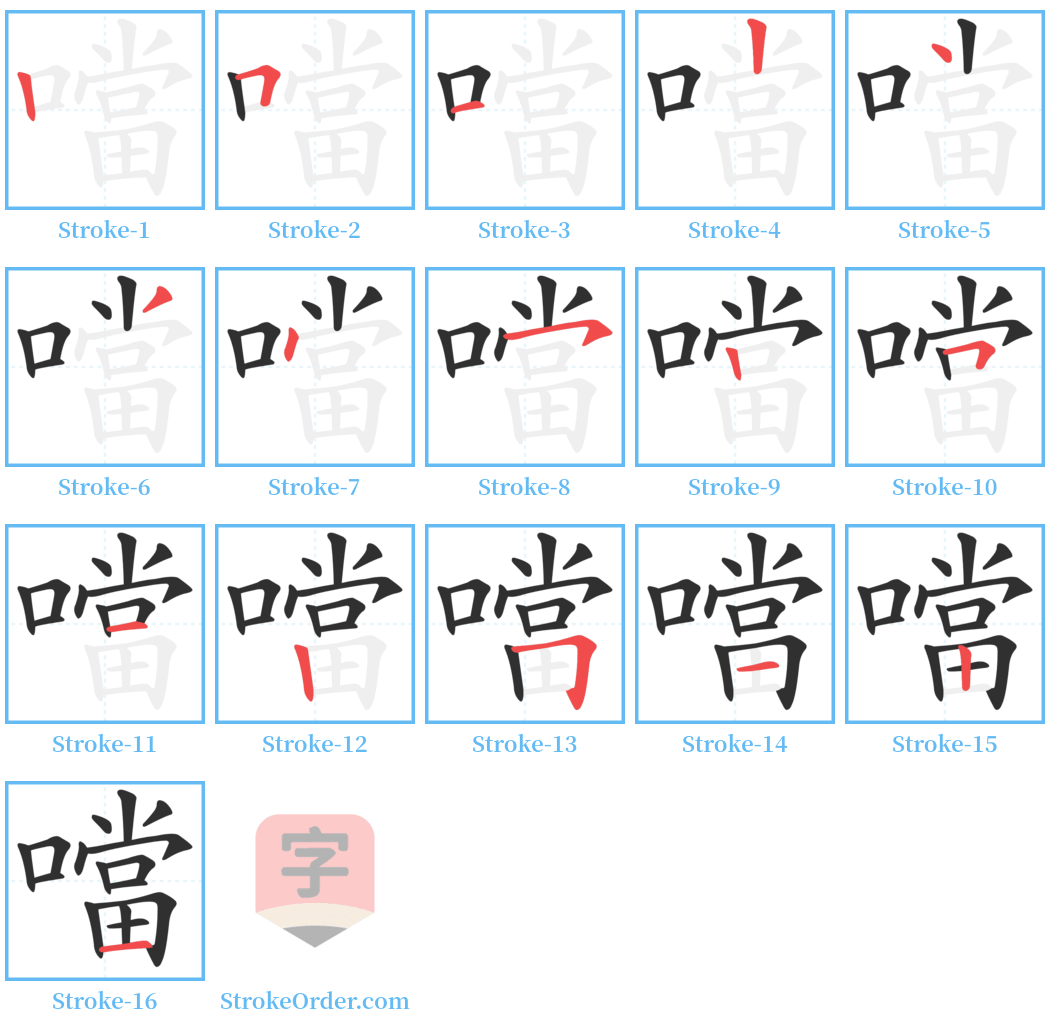噹 Stroke Order
Animated Stroke Order of 噹

Stroke Order Diagrams for 噹

Step-by-Step Handwriting Guide for 噹

Learn to Write Chinese Characters with Video Tutorials
Watch the video of writing the Chinese character "噹", learn the correct stroke order (笔顺) of the character "噹", and master the standard way of writing the character "噹".
Free Printable Handwriting Practice with Stroke Order: 噹
Printable Writing Practice Worksheet of "噹" in Portrait Orientation (Tian Zi Ge)

Printable Writing Practice Worksheet of "噹" in Landscape Orientation (Tian Zi Ge)

Information of 噹
Pinyin
dāng
Radical
口
Strokes
16 strokes
Usage
★★★
Definition
(onom.) dong / ding dong (bell)
噹
1. See "当" (dāng).
2. Verb: to hold a position.
Example phrases: "当记者" (to be a journalist), "当教员" (to be an instructor).
3. Verb: to supervise or manage.
Example phrases: "当家" (to be in charge), "当位" (to hold a position), "当权" (to hold power), "当政" (to be in government).
4. Adjective: appropriate.
Example phrases: "恰当" (proper), "适当" (suitable), "妥当" (appropriate), "若有不当之处,请多指教。" (If there are any inappropriate matters, please advise.)
From "礼记.乐记": "In ancient times, heaven and earth were in order and the four seasons were appropriate; the people had virtue and the five grains flourished."
5. Adjective: the same.
Example phrases: "当日" (that day), "当年" (that year).
6. Verb: to think or to believe.
Example phrases: "我当他是好人。" (I take him to be a good person.)
From "文明小史.第二九回": "Regarding the matter in West Village, you made a profit of fifty taels, do you think I don't know about the dealings of blacksmith Wang?"
7. Verb: to compete against or to resist.
Commonly used with the meaning "to block."
Example phrases: "锐不可当" (unstoppable), "螳臂当车" (a mantis trying to stop a cart).
From "史记.卷八一.廉颇蔺相如传": "Speaking of military matters, no one in the world can compete."
From Tang Dynasty poet Wang Wei's poem "老将行": "In one body I have fought for three thousand miles, with one sword I have once faced a million troops."